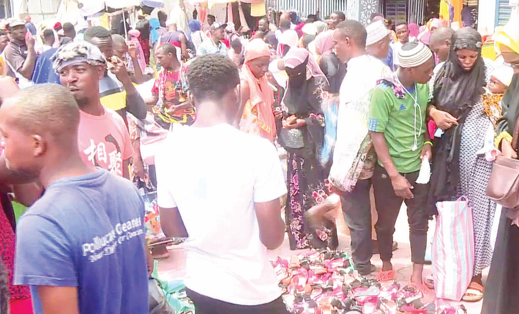Mombasa sparkles with merry making ahead of Eid
By Reuben.Mwambingu, April 9, 2024Eid-ul-Fitr is just around the corner, and the coastal city of Mombasa is sparkling with merry making.
In the central business district, nights flicker and dazzle with an array of decorations—mini string lights, wide-angle LED mini lights, large-bulb lights, animated, and colour-changing lights adorn the streets and key buildings, including favoured shopping malls.
Chief Kadhi Sheikh Abdulhalim Hussein says depending on the sighting of the Shawwal crescent, Ramadhan is expected to conclude today and tomorrow, meaning Eid ul-Fitr public holiday shall be on Thursday, April 11, calculated after the maximum 30 days of the lunar month for logistical reasons.
Eid celebrations begin with the offering of Zakat al-Fitr, also known as Sadaqat al-Fitr or Fitrana, a charitable donation of food that Muslims pay before Eid prayer and end of Ramadhan. The literal meaning of Zakat al-Fitr is “purifying charity of breaking the fast”.
Zakat al-Fitr is compulsory for all Muslims to give and is usually given in the form of food. It is followed by special prayers at the Mosque. Most shoppers prefer shopping at night, unlike the sweltering daytime; nights here are cooler and calmer. For some, shopping at night is easy with less pressure. As a result, popular shopping outlets including Nawal Centre, Naivas stay open until late at night.
Twinkling lights, festive displays, and vibrant decorations usher in the joyous spirit of Eid while at the same time illuminating glamorously on elated shoppers giving last-minute touches to their preparations by visiting shopping malls and local markets to celebrate this joyous festive occasion in a befitting manner.
Since last week, shoppers have been flocking to various commercial hubs to finalise their shopping amidst prayers and fasting. Shoppers have been swarming perfume stalls looking for the best scent to wear. Many Muslims dress in new garments, as it is believed that Prophet Muhammad would wear his best cloak to commemorate this day. In the light of the above, shopping becomes a standard practice as Eid approaches.
“Preparations for Eid are on, and therefore the most important thing right now is shopping for new clothes. Muslims should dress for Eid in their best clothes, and go out to see their friends and visit their relatives looking and smelling good. This is customary and well-known;it is part of expressing joy and happiness on that day. This is also indicated by the Sunnah,” explains Salim Moyo, a resident of Likoni.
Main markets
Several women can be seen in the main markets and shopping malls looking for dresses, shoes, and other essential accessories to celebrate the Eid festivities.
“I am here to shop for my husband’s Eid surprise. The prices are not what I expected. I came with a budget but I did not shop as per plan,” said Mwanaida Mwadadu from Msambweni who was shopping at Mackinnon Market, popularly known as Marikiti.
However, for Ali Swaleh Said, who was also on a shopping spree at Marikiti, prices depend on the shopper’s familiarity considering the existence of brokers. “This market requires someone who is familiar with all the outlets. Last year when I went shopping I was new and I had to go through brokers so things were very expensive. However, this time I went to wholesale shops and bought what I wanted,” explained Swaleh.
In the build-up to Eid celebrations, streets in Mombasa in the evening and late hours are characterised by vendors displaying food and clothing for fasting Muslims to buy after breaking the fast.
Typical evening
A typical evening in the city and its outskirts such as Kongowea, Kisauni, and Bombolulu sums up the sweet Mombasa raha life. Shortly after sunset, friends and neighbors gather in small groups for street chats over Kahawa Chungu—a dark beverage brewed from concentrated coffee and less sugar.
On the fringes of the CBD and beyond, this beverage is served in partially lit alleys characterized by tantalising aromas of the irresistible Coastal cuisines.
Around Kahawa Chungu joints, there are usually plenty of finger-licking delicacies such as the tasty Viazi Karai (fried potatoes), Bajia, Kachiri (crisps), Mahamri (Swahili doughnuts), Mbaazi za nazi (Pigeon Peas soaked in coconut milk), Vitumbua (Coconut rice pancakes), and Mkate wa Sinia (Rice and coconut Cake) among other mouthwatering dishes.
